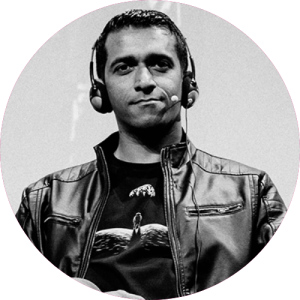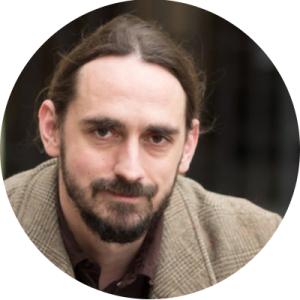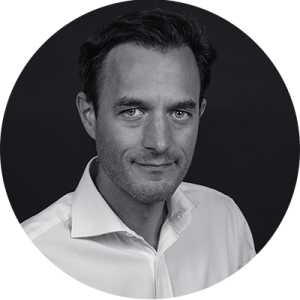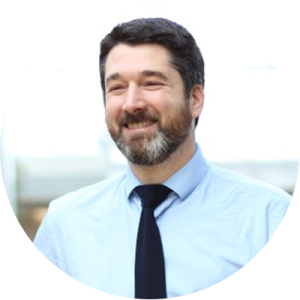It seems we can’t find what you’re looking for. Perhaps searching can help.
It seems we can’t find what you’re looking for. Perhaps searching can help.
 Mos Amokhtari has been Technical Cloud Manager at Red Hat France since May 2023.
Mos Amokhtari has been Technical Cloud Manager at Red Hat France since May 2023.
He began his career in 2000 working for start-ups as a consultant before moving on to become a department manager at Quallaby and Micromuse. When Micromuse was acquired by IBM in 2006, he joined IBM’s pre-sales team as a solutions architect. He then joined BDNA as Technical Director for Europe. In 2011, Mos joined CA Technologies as a key account architect, particularly in the banking sector, before taking over as Technical Director of CA France in 2014. When Broadcom acquired CA in 2018, he decided to turn to open source, first at Kong as solutions architect and Global Lead Partner Enablement, then at Red Hat.
Mos holds a PhD and a master’s degree in telecommunications
Nozha Ben Hajel-Boujemaa is Global VP AI Innovation at Decathlon in charge of GenAI for costumer experience innovation program. She was the Global VP Digital Ethics & Responsible AI for IKEA-Retail Digital Hub Amsterdam).
Dr. Boujemaa served as Chief Science and Innovation Officer at Media Technologies, AI for healthcare industry. Dr. Boujemaa is co-chair of OECD AI network of experts. She is member of the inter-ministerial AI expert committee for the French government. She had co-chaired “Ethical Guidelines for Trustworthy AI” report of the European Commission High Level Expert Group on Artificial Intelligence. Besides, she was member of the World Economic Forum’s Steering Committee on Digital Trust. Dr. Boujemaa was previously the director of INRIA Saclay Research Center and a research director heading the multimedia retrieval research group.
She is the founder of the interdisciplinary AI institute DATAIA. Dr. Boujemaa holds a PhD and HDR in Computer Science and she’s a Knight of the French National Order of Merit.
 Kevin Pasini is an AI researcher at IRT SystemX who focuses on trustworthy‑AI design, uncertainty quantification in machine learning, and time‑series analysis.
Kevin Pasini is an AI researcher at IRT SystemX who focuses on trustworthy‑AI design, uncertainty quantification in machine learning, and time‑series analysis.
He earned his PhD in 2021 from Gustave Eiffel University, where he developed forecasting and anomaly‑detection models for transport‑system monitoring.
Since then, he has contributed to the French Confiance.ai program and the European Trustworthy AI Association, tackling the technical challenges involved in conceiving, developing, and refining trustworthy‑AI methodologies, and working on complex industrial‑system monitoring based on multivariate time‑series AI‑forecast models with uncertainty quantification mechanism.
 Agustin PICARD is an AI Research Engineer at IRT Saint-Exupéry, leading the Explainability Challenge in the DEEL project.
Agustin PICARD is an AI Research Engineer at IRT Saint-Exupéry, leading the Explainability Challenge in the DEEL project.
Specializing in the Explainability of Deep Neural Networks for Computer Vision and NLP applications, he has also dabbled in Distributionally Robust Optimization and bias detection and mitigation in industrial applications.
His experience has brought him to work on a broad spectrum of Explainability techniques, ranging from attribution methods to feature visualization, concept-based and data-centric explanations via Influence Functions.
One of the main contributors to the Influenciae open-source library, he has also contributed to the maintenance of Xplique.
 Daniel Becker has a background in theoretical physics (quantum computing and spintronics) and algorithmic trading.
Daniel Becker has a background in theoretical physics (quantum computing and spintronics) and algorithmic trading. Arun Joseph is the co-founder & CEO of Masaic, a stealth startup building AGC , the Agentic Compute: a new computing substrate for knowledge work. AGC is open by design and built for scale, providing the architectural foundation for decisioning and actioning systems that integrate with existing enterprise stacks.
Arun Joseph is the co-founder & CEO of Masaic, a stealth startup building AGC , the Agentic Compute: a new computing substrate for knowledge work. AGC is open by design and built for scale, providing the architectural foundation for decisioning and actioning systems that integrate with existing enterprise stacks.
Previously, he headed engineering at Deutsche Telekom AG’s Central AI program,AICC, where he envisioned & led one of Europe’s first agentic PaaS platforms, deployed at multi-country scale and now part of the Eclipse Foundation. Known as Eclipse LMOS, the platform demonstrated how empowering existing teams could produce best in class, cost-efficient systems that made work meaningful and accelerated results delivery.
He also founded Rhizome Foundry GmBH, a builder’s movement and foundry for agentic computing companies and systems, shaping the principles and infrastructure of this emerging paradigm.
 Nicolas is an image processing engineer with 30 years of experience in digital technologies.
Nicolas is an image processing engineer with 30 years of experience in digital technologies.
He has worked in France, Switzerland, and the USA for major companies like GE and Texas Instruments, and co-founded several start-ups.
In 2010, he founded EyeSnap, specializing in AI-based image and video recognition software. EyeSnap is committed to trustworthy AI and serves demanding industries such as nuclear, watchmaking, and manufacturing.
Actively involved in AI standardization, Nicolas leads the European project within ISO/IEC JTC 21 to define accuracy criteria for AI-powered computer vision systems, supporting the implementation of the EU AI Act.
 With a PhD in AI, he spent 3 years in Japan, researching the behavior of mobile robots with intensive use of GPUs. Back in France, he decided to switch from robots to video games and build AI middleware for non-experts.
With a PhD in AI, he spent 3 years in Japan, researching the behavior of mobile robots with intensive use of GPUs. Back in France, he decided to switch from robots to video games and build AI middleware for non-experts.
Inspired by these concepts of explainable and controllable AI, he co-founded Craft AI where he oversees R&D. In this role, he coordinates patent filings and partnerships with other companies and universities. He is currently co-supervising two theses on the subjects of confidentiality and causality. The research carried out at Craft AI has led to numerous publications (ICML, ICLR…).
He is also a member of the steering committee of the Systematic data science and artificial intelligence cluster.
 Léa Deswarte spent my career working in innovation — from big companies to start-ups.
Léa Deswarte spent my career working in innovation — from big companies to start-ups.
A few years ago, She even took the plunge into entrepreneurship by joining a cybersecurity start-up, before moving back into the SME world. Today, she leads the “AI Testing Team” at Kereval, where she works with developers and integrators to ensure their AI systems are reliable.
She believes technology should always put people first. Whether it’s AI or cybersecurity, these tools need to be used thoughtfully — with a clear understanding of their impact on society. No matter the field — AI, cybersecurity, or beyond — technology should always be used responsibly, with people and societal impact in mind.
 Olivier Breillacq began his career in the industrial sector, where he held various marketing and sales roles. In 2018, he took over MethodOmics, a company specialized in the analysis of complex health data. Shortly after, he founded Octopize – Mimethik Data, driven by a strong conviction: the GDPR is not a constraint, but a unique opportunity to build ethical and human-centered data governance.
Olivier Breillacq began his career in the industrial sector, where he held various marketing and sales roles. In 2018, he took over MethodOmics, a company specialized in the analysis of complex health data. Shortly after, he founded Octopize – Mimethik Data, driven by a strong conviction: the GDPR is not a constraint, but a unique opportunity to build ethical and human-centered data governance.
His vision? Turn privacy into a driver for innovation — and unlock the full potential of data, responsibly. »

Former Director of the Grand Défi on securing and certifying AI systems at the French General Secretariat for Investment.
Initiated Confiance.ai R&T program. Expert in AI, semiconductors, and digital technologies. Julien held research and management roles at CEA-Leti and CEA-List.
Negotiated multiple european partnerships and drove international standards (IEEE and VDE), he is also a ormer European Innovation Council advisor.
Sebastien Henwood is with the French Ministry of armed forces agency of AI for Defence.
He holds a PhD from Polytechnique Montreal, after obtaining a double master’s degree from Polytechnique Montreal/Grenoble INP – UGA.
He recently co-wrote an article in the Pole d’Excellence Cyber white paper on trustworthy AI for Defence, and led roundtables at the AI Summit Defence side event and European cyber week’s Conference on Artificial Intelligence for Defence.
Dr. Agnes Delaborde is head of the artificial intelligence evaluation department at LNE, after several years with the French center for scientific research CNRS, and the Sorbonne University.
She currently manages a team of fifteen engineers and PhDs, who are regularly joined by PhD students, post-docs and trainees.
Agnes specialises in assessing the impact of new technologies on human users and industry. Her multidisciplinary approach covers several aspects of artificial intelligence: psychosocial components, performance, security, safety, ethics, acceptability and regulation. She coordinated a number of projects for LNE in a range of domains, including agricultural robotics, industrial and medical robotics, and natural language processing.
Since 2017, she has been a member of the steering committee of the Data Sciences and AI cluster of the Systematic competitiveness cluster, as Vice-President Vision & Foresight and in charge of the « AI Assessment » axis. She is also LNE’s representative for the French Institute for evaluation and security of AI (INESIA). As an expert, she supports various state bodies and supervisory bodies (Ministry of Labour, ASN, etc.) in understanding the regulatory requirements for AI.
Chrystèle Johnson has over 25 years’ experience in quality and performance for complex projects, implementation of management systems and leading national and international teams in Defence, telecom, and transport sectors.
Since 2023, she has applied her cross-disciplinary skills to shaping a trusted AI framework. She contributes to standardization through AFNOR CN AI and participates in AFIS CT IS and AI. She promotes risk-based governance and cross-functional collaboration to unlock AI’s full potential.
Adam Leon Smith is Chair of the AIQI Consortium, a global initiative to promote the use of the quality infrastructure for responsible AI, and Deputy Chair of the UK’s national AI standards committee.
He is also Chair of BCS Fellows Technical Advsory group and is involved in the NoLeFa-84 project, assisting the European Commission in co-ordinating the bootstrapping of market surveillance authorities across the 27 member states. Before involvement in quality infrastructure, Adam spent 20 years in senior technology roles.
In 2024, the University of Bath awarded Adam an honorary doctorate in recognition of his work and its impact on the profession.
Arnaud Gotlieb, chief research scientist at Simula Research Lab., Norway, is an expert in applying AI to validate autonomous systems.
After completing his PhD in 2000, he joined INRIA, the National Institute for Research in Digital Science and Technology, and got habilitated (HDR) in 2011 from University of Rennes. Since 2011, he has been with Simula and has co-authored over 150 publications in AI and software testing.
He led the industrial pilots of the H2020 AI4EU Project (2019-2021), dedicated to the creation of the European AI-on-demand platform and he is now the Coordinator of the HEU AI4CCAM Project (2023-2025) devoted to Trustworthy AI in Connected, Cooperative Automated Mobility.
Augustin Lemesle is a research engineer at the Software Safety and Security Laboratory at CEA-List.
He is part of the AISER team on AI Safety and works at the application of formal methods to artificial intelligence safety both as part of academic and industrial projects.
He is the lead developer of two tools of the laboratory since 2020, PyRAT, a neural network verification tool and AIMOS, a framework for metamorphic testing.
He has also been involved in a number of project: SPARTA as part of the coordination team, ENSURESEC as the technical coordinator, Confiance.AI, TRUMPET
After a career as a researcher and project manager in simulation and AI in the field of energy, Bertrand Braunschweig headed the ICT department of ANR, two Inria research centers (Rennes then Saclay), produced two editions of the Inria white paper on AI and coordinated the research component of the national artificial intelligence strategy.
He is now an independent consultant and provides scientific support to various organizations including as scientific coordinator of the Confiance.ai community and programs.
He is also a co-editor of the forthcoming European standard on AI risk management, in support of the European AI Act
Karla Quintero is a senior researcher at the Institute of Research and Technology SystemX in France.
She and currently leads the team for Systems Engineering and Functional Safety and contributes to French and European projects tackling challenges of trustworthy AI in mobile systems.
After the end of the Confiance.ai program, she has been contributing to the roadmap of the End-to-End Methodology for trustworthy AI-based systems for the European Trustworthy AI Foundation. Before SystemX she worked in applied research for the automotive industry.
She has a Systems Engineer degree and a PhD in Industrial Automation.
Sarvapali (Gopal) Ramchurn FIET is Professor of Artificial Intelligence and CEO of the £31M Responsible Ai UK programme.
He was Director of the UKRI Trustworthy Autonomous Systems (TAS) Hub, sitting at the centre of the £33M Trustworthy Autonomous Systems Programme.
He is co-founder and co-CEO of the AI start-up Empati Ltd, which delivers solutions for real-time carbon accounting across grid, generation and consumption.
His research focuses on the design of Responsible Artificial Intelligence for socio-technical applications including energy systems and disaster management, using Machine Learning, HCI and Game Theory.
He has won many best paper awards and the AXA Research Fund Award (2018).
Foutse Khomh is a Full Professor in the Department of Computer Engineering at École Polytechnique de Montréal, where he leads the SWAT team on software analytics and cloud engineering research.
He is a Canada Research Chair Tier 1 on Trustworthy Intelligent Software Systems, a Canada CIFAR AI Chair on Trustworthy Machine Learning Software Systems, and FRQ-IVADO Research Chair on Software Quality Assurance for Machine Learning Applications. He is also the Scientific Co-Director in charge of Scientific and International Activities at the Institut de Valorisation des Données (IVADO). Prior to these positions, he was a Research Fellow at Queen’s University (Canada), working with the Software Reengineering Research Group and the NSERC/RIM Industrial Research Chair in Software Engineering of Ultra Large Scale Systems.
He received a Ph.D. in Computer Science from the University of Montreal (Dean’s Honour List). He also received a Master’s degree in Software Engineering from the National Advanced School of Engineering (Cameroon) and a D.E.A. (Master’s degree) in Mathematics from the University of Yaoundé I (Cameroon).
He has experience as a Software Designer at different companies, doing research, system design, and project management.
Dr. André Meyer-Vitali is a computer scientist who got his Ph.D. in software engineering, ubiquitous computing and distributed AI from the University of Zürich.
He worked on many applied research projects on Ambient Intelligence and multi-agent systems at Philips Research and TNO (The Netherlands) and contributed to AgentLink. He also worked at the European Patent Office. Currently, he is a senior researcher at DFKI (Germany) focused on engineering and promoting Trusted AI and is active in the AI networks TAILOR and CLAIRE.
He is the scientific leader (principal investigator) of the Centre for European Research in Trusted Artificial Intelligence (CERTAIN). His research interests include Software und Knowledge Engineering, Design Patterns, Neuro-Symbolic AI, Causality, Human-Agent Interaction, and Agent-based Social Simulation (ABSS) with the aim to create Trust by Design.
He is also contributing to the development of standards and roadmaps for trustworthy AI.
Dr. Maximilian Poretschkin heads the “AI Assurance and Assessments” department at Fraunhofer IAIS. In this role he advises companies and authorities worldwide on trustworthy AI.
His research interests include the technical implementation of legal requirements for AI systems, the development of AI testing methods, criteria and tools as well as the development of AI governance frameworks. He also leads the German project ZERTIFIZIERTE KI, in which he has developed one of the first AI assessment catalogs.
He studied physics and mathematics in Bonn and Amsterdam.
Holder of a Master’s degree in quantum physics from the École Normale Supérieure and a PhD in quantum physics from the University of Orsay, Gaël Varoquaux developed a passion for IT and data processing during his studies.
In 2008, he decided to change course and joined the Parietal team at the Inria Saclay-Ile-de-France Research Centre, specialists in brain modelling for use in neuroscience. Varoquaux used Scikit-learn in his research and was active in coordinating the community of developers.
In 2018, he became project manager for the Scikit-learn consortium.
As a Thales AI Fellow, Juliette Mattioli is considered a reference in AI not only within Thales but also in France.
In 2017, she was one of the 5 representatives of France at the G7 Innovators Conference. Since 2019, she is President of the « Data Sciences & Artificial Intelligence » Hub of the Systematic Paris-Region cluster.
Recognized for her excellent knowledge of industrial and responsible AI issues, she contributes in the field of trustworthy AI engineering and she promotes hybrid AI to accelerate the industrial deployment of AI-based solutions in critical systems.
She has published numerous scientific papers and filed seven patents.
Fabien Mangeant currently serves as the Chief Data & AI Officer at Air Liquide, where responsibilities include building and implementing the data and AI strategy and managing a team of 150.
Previously, MANGEANT held various leadership roles at Groupe Renault, including Scientific Director in Computing & Data Sciences and Expert Leader in Artificial Intelligence & Data, overseeing a network of 30 tech experts and developing data-based services.
MANGEANT’s experience spans significant roles in innovation and applied mathematics at Airbus and teaching positions at Ecole Centrale Paris and other universities. Educational credentials include a Master’s in Physics from Pierre and Marie Curie University and an MSc in Engineering from CentraleSupélec.
Philip Piatkiewicz stands at the intersection of European policy and technological innovation.
As Secretary General of the AI, Data and Robotics Association (Adra), he is a central figure in shaping and supporting Europe’s competitive digital future.
He leads ADRA, as the private-side for a landmark €2.6 billion European partnership, uniting stakeholders to accelerate advancements in AI, Data, and Robotics.
With a proven track record in strategic planning and managing complex international projects, Philip is dedicated to building a competitive and sovereign European technology ecosystem.
Bernhard holds engineering degrees from the University of Stuttgart and Télécom Paris (ENST), and completed a PhD at the Technical University of Munich, where he was awarded the Rohde & Schwarz Prize.
Formerly Chief Technical Officer for Siemens Digital Industries, he joined the Siemens Communications division in 1999, before being appointed Vice President, R&D for Siemens Rail Automation in 2005.
In 2011, he took charge of platform activities and R&D, as Vice President for Siemens Industrial Automation Systems, and, from 2015, held the position of Chief Technical Officer at Siemens Digital Industries. Bernhard joined Thales in 2020 as Chief Technical Officer and Senior Vice President.
Prior to co-founding Cosmo Tech, Michel was Chief Scientist & Corporate Vice President for Strategic Intelligence and Innovation at Veolia Environment.
Michel is a former Full Professor of Computer Science at École Normale Supérieure in Lyon, former Chair of Complex Systems Modeling & Senior Scientist at the École des Hautes Etudes en Sciences Sociales in Paris, and former External Professor at the Santa Fe Institute in New Mexico (USA).
He is an Eisenhower Fellow, a member of the OECD Network of Experts on Artificial Intelligence and the President of the Institute for Technological Research SystemX, boosting the digital transformation of French industry.
David Sadek is VP Research, Technology & Innovation at Thales, particularly in charge of Artificial Intelligence & Information Processing.
He was SVP Research at IMT (“Institut Mines-Télécom”) and, previously, VP Research at Orange.
Doctor in Computer Science and expert in Artificial Intelligence and Cognitive Science, he created and ran at Orange Labs for more than fifteen years the R&D teams on intelligent agents and natural human-machine dialogue.
Shalini, Global Digital Offerings Leader at Sopra Steria, is a technology strategist with 30 years of experience in business utilization of digital technologies.
She excels in business acumen, leadership, and AI-driven strategies.
As board member of the Strategic AI Program in Sopra Steria, she drives AI powered business for clients. She has been recognized globally and nominated for Transformation Leader and Digital Leader at Women in Tech Excellence awards. As a technology mentor, keynote speaker, and NASSCOM evangelist, Shalini drives disruptive tech advancements and successful digital solutions.
She is extremely passionate about ethical usage of AI and usage of AI for the larger good.
A graduate of École Polytechnique (X92 class) and a doctor in cryptology, Guillaume has worked for the French Prime Minister and Ministry of Defense, where he specialized in cybersecurity and cyberdefence.
From 2014 to 2022 he has been director deneral of ANSSI, the French National Cyber Security Agency. Since January 2023, he has been Deputy Managing Director of Docaposte (La Poste Groupe), a leader in trusted digital technologies, in charge of technological assets around artificial intelligence, cyber, IT and cloud computing. Since July 2025 he is also co-chairman of the French AI and Digital National Council.
Nicolas Rebierre is an R&D manager at IRT SystemX, the technology research institute based in Paris-Saclay.
Nicolas joined with the mission to build and run the European Trustworthy AI Association that perpetuates and scales the results and the ecosystem resulting from the flagship Confiance.ai research program.
Nicolas brings years of experience in technology industry, with roles in engineering, product management, open source program office, internal ventures, industrial research, and leadership.